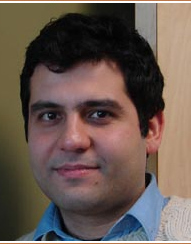Arab Spring for Biology? Choose Open Access
 isbscience.org/news/2012/04/19/arab-spring-for-biology-choose-open-access/
isbscience.org/news/2012/04/19/arab-spring-for-biology-choose-open-access/
This weekend, Burak Kutlu, one of our research scientists in the Hood Lab, is attending the Sage Bionetworks Commons Congress in San Francisco. The Congress will focus on "Building Better Models of Disease Together: Moving beyond the current medical information system and its rewards." He was selected as an outstanding Young Investigator. Here's his statement on why open access is important:
"The economics performing open science is not well defined. One of the reasons that we are failing to make major advancements in drug discovery is because most of the data sit behind walls until researchers decide to publish it. A pessimistic worldview dictates that the current failing system of new drug discovery will continue and there is no hope to change that. I am sure that a majority of the people living under dictatorship in Arab countries felt the same way, until some small group of people took leadership and finally managed to ignite a revolution that toppled the whole regimes. I would like to be part of the revolution to make open access mainstream and I look forward to the Sage Congress to network with people with the same agenda." – Burak Kutlu
Kutlu – whose work involves identifying gene regulatory networks involved in glioblastoma initiation and progression – will report on his experience at the Congress upon his return. Stay tuned.






